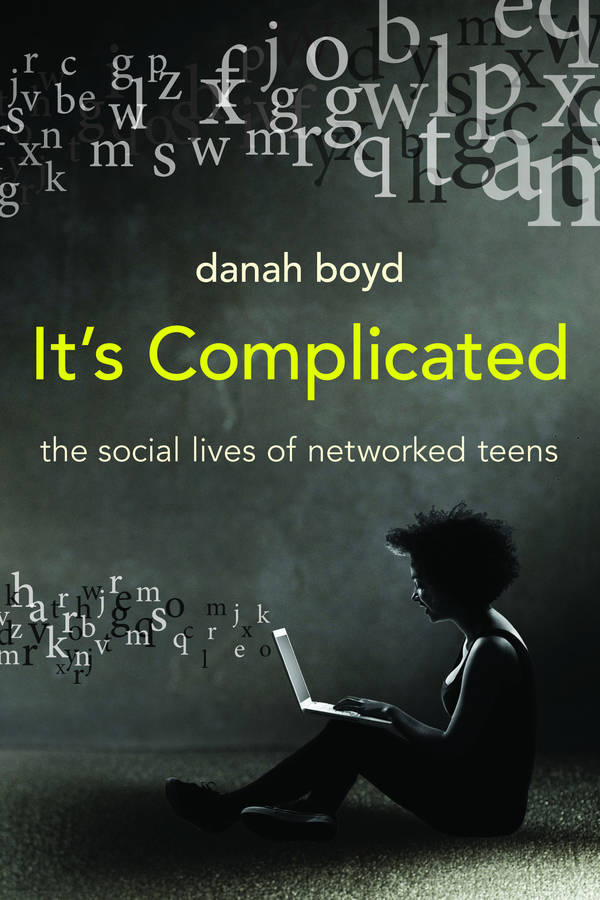“It’s Complicated”
May 15, 2015
I recently finished reading “It’s Complicated: the social lives of networked teens” by danah boyd. (Amazon.)

I’ve enjoyed following danah’s work for many years. If you build and design software, you can’t operate in a vacuum. You need to understand technology, but you must equally (or even more) understand people. That’s why I try to spend part of my time reading about things like behavioral economics and the perception of risk, surveillance and security, to understand how people in various settings and cultures adapt and react to our ever-changing modern world of technology.
This book is a great addition to my library. Teen behavior is easily sensationalized in click-hungry media, so much so that it is sometimes hard to punch through the hype to understand what’s real and what matters. Unlike most people talking about the subject, danah has spent a lot of time in the past many years actually talking to real American teens across the country. These interviews and her commentary form the core of the book, as she expands on various important topics affecting teens’ lives. I’ll just list the chapter titles: Identity. Privacy. Addiction. Danger. Bullying. Inequality. Literacy.
Although the book is America-centric, a lot of it translates to the rest of the Western world, since the media everywhere these days likes to produce clickbait and overhype teen issues.
I was happy to see that the core message of the book is optimistic: the teens are fine, as they have always been, and are just trying to creatively adjust to the limitations around them. For example, they spend a lot of time on their phones talking to their friends on Facebook. Does this mean they are addicted to Facebook? It turns out that the motion of teens in the real world in America these days is severely limited. They cannot drive themselves, and many public places like malls have restricted teen groups from gathering there. Since there’s “danger” everywhere, teens can’t just hang out on the streets, and are stuck at home a lot of the time. So of course they go to Facebook since this is the only place where they can actually talk to their friends, although they do say openly that they’d much prefer to hang out with them in real life.
Rather than outright restrict everything, it makes more sense for parents and other adults to help teens cope with their new realities while giving them freedom to make some of their own mistakes. Although teens are glued to their devices a lot of the time, it doesn’t mean that they are the digital wizards and perfectly understand things like privacy settings. Moreover, there is a lot of social dynamics that are still in flux and depend a lot on the context. For example, if you are friends with your mom on Facebook, is it OK for her to comment on your stuff together with your friends, or is it awkward?
The book is highly approachable and easy to read. Although danah has done a lot of research, there’s no “boring science” in this book. There are some references to related work, but the core of it is still the teens themselves and the interviews with them.
One thing leads to the next. As I read various books around behavior, references to Flow by Csikszentmihalyi keep popping up. I’ll probably tackle that one next in my psychology reading series.